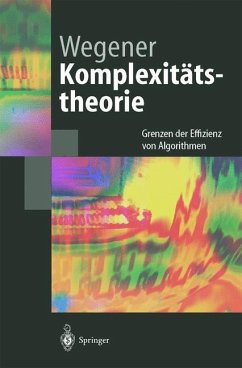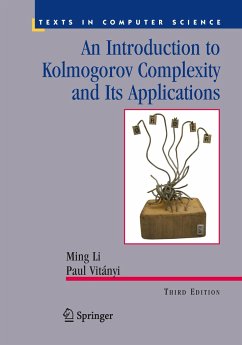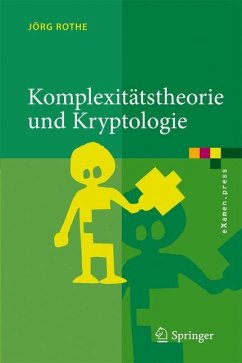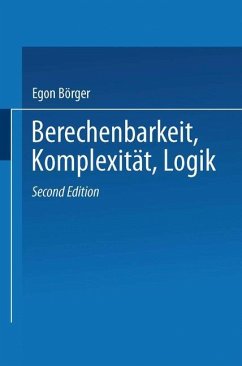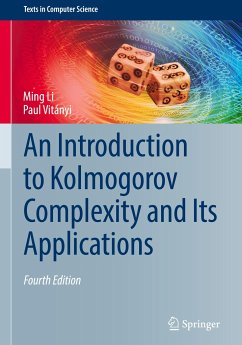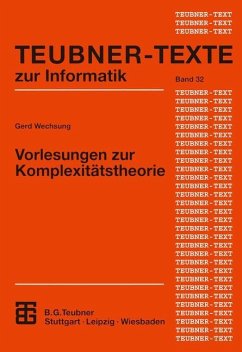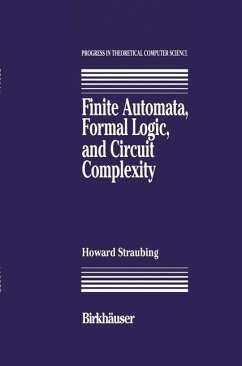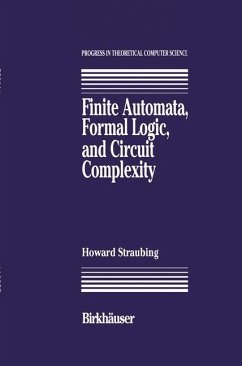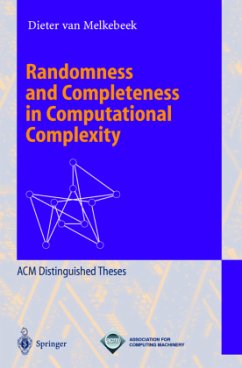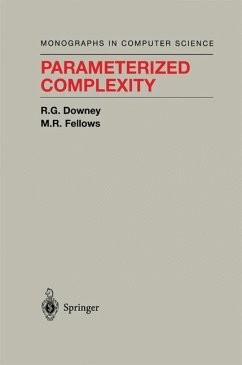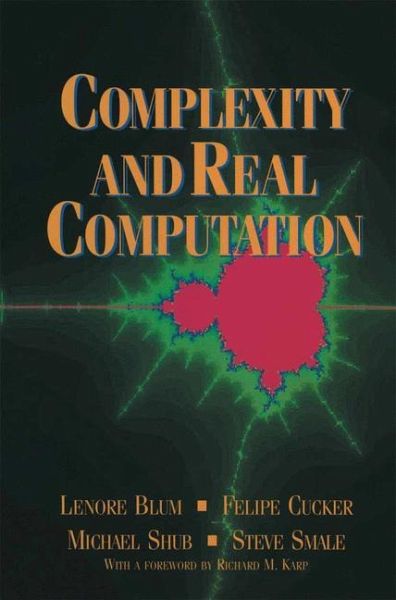
Complexity and Real Computation
Versandkostenfrei!
Versandfertig in 1-2 Wochen
60,99 €
inkl. MwSt.
Weitere Ausgaben:

PAYBACK Punkte
30 °P sammeln!
The classical theory of computation has its origins in the work of Goedel, Turing, Church, and Kleene and has been an extraordinarily successful framework for theoretical computer science. The thesis of this book, however, is that it provides an inadequate foundation for modern scientific computation where most of the algorithms are real number algorithms. The goal of this book is to develop a formal theory of computation which integrates major themes of the classical theory and which is more directly applicable to problems in mathematics, numerical analysis, and scientific computing. Along the way, the authors consider such fundamental problems as:
- Is the Mandelbrot set decidable?
- For simple quadratic maps, is the Julia set a halting set?
- What is the real complexity of Newton's method?
- Is there an algorithm for deciding the knapsack problem in a ploynomial number of steps?
- Is the Hilbert Nullstellensatz intractable?
- Is the problem of locating a real zero of a degree four polynomial intractable?
- Is linear programming tractable over the reals?
The book is divided into three parts: The first part provides an extensive introduction and then proves the fundamental NP-completeness theorems of Cook-Karp and their extensions to more general number fields as the real and complex numbers. The later parts of the book develop a formal theory of computation which integrates major themes of the classical theory and which is more directly applicable to problems in mathematics, numerical analysis, and scientific computing.
- Is the Mandelbrot set decidable?
- For simple quadratic maps, is the Julia set a halting set?
- What is the real complexity of Newton's method?
- Is there an algorithm for deciding the knapsack problem in a ploynomial number of steps?
- Is the Hilbert Nullstellensatz intractable?
- Is the problem of locating a real zero of a degree four polynomial intractable?
- Is linear programming tractable over the reals?
The book is divided into three parts: The first part provides an extensive introduction and then proves the fundamental NP-completeness theorems of Cook-Karp and their extensions to more general number fields as the real and complex numbers. The later parts of the book develop a formal theory of computation which integrates major themes of the classical theory and which is more directly applicable to problems in mathematics, numerical analysis, and scientific computing.
Computational complexity theory provides a framework for understanding the cost of solving computational problems, as measured by the requirement for resources such as time and space. The objects of study are algorithms defined within a formal model of computation. Upper bounds on the computational complexity of a problem are usually derived by constructing and analyzing specific algorithms. Meaningful lower bounds on computational complexity are harder to come by, and are not available for most problems of interest. The dominant approach in complexity theory is to consider algorithms as oper ating on finite strings of symbols from a finite alphabet. Such strings may represent various discrete objects such as integers or algebraic expressions, but cannot rep resent real or complex numbers, unless the numbers are rounded to approximate values from a discrete set. A major concern of the theory is the number of com putation steps required to solve a problem, as a function of the length of the input string.





